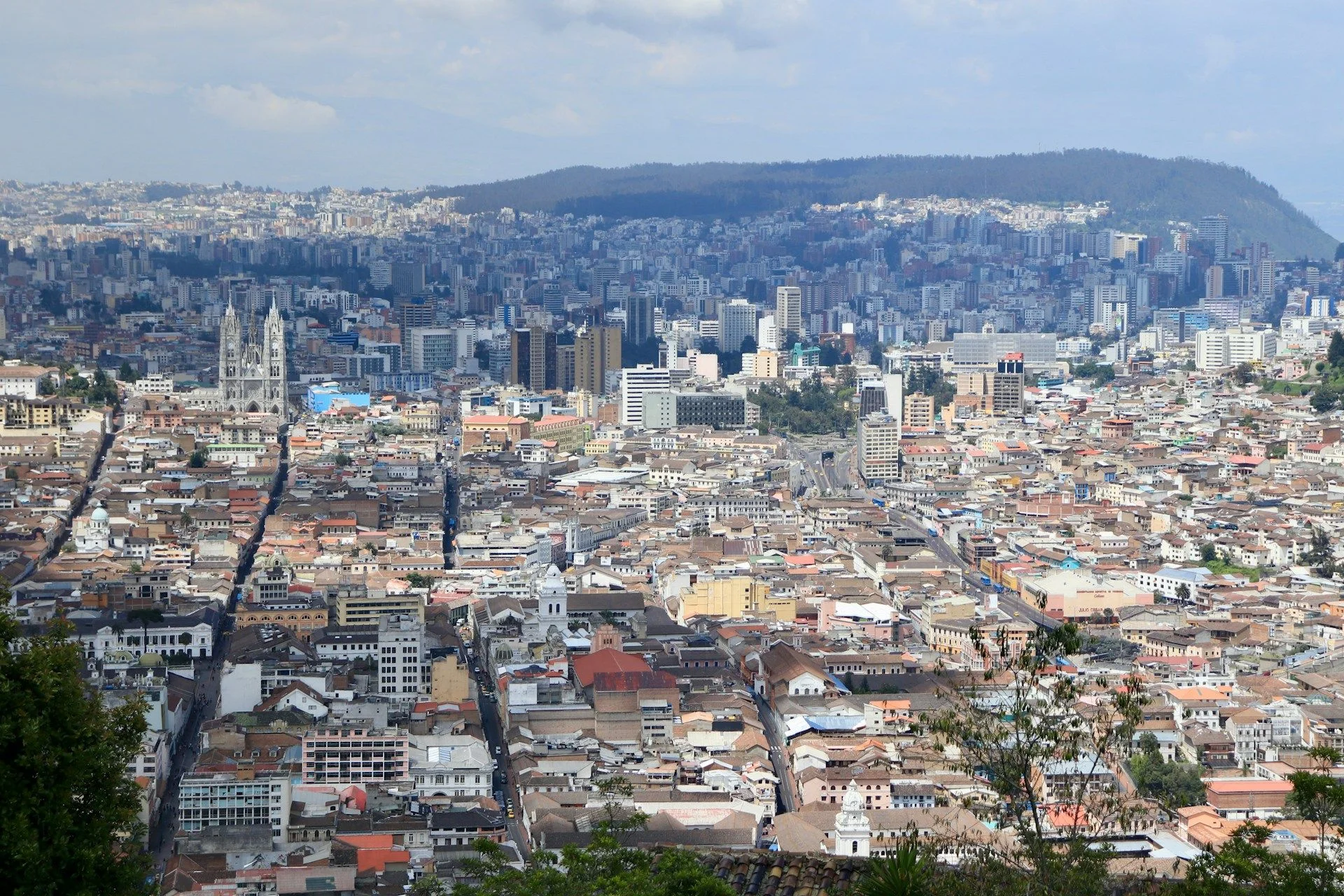Real estate in Quito, EcuadorMountain capital withparks, views, and old squares

Best offers
in Quito
Benefits of investment in
Ecuador real estate
Beachfront living with low entry costs
Coastal towns like Salinas and Manta offer ocean views, developed infrastructure, and real estate from $40,000.
Residency linked to property investment
A $42,500 property purchase opens the path to permanent residency and a tax-friendly regime.
Undervalued market with stable demand
Domestic buyers and retirees keep up demand in both coastal and Andean regions — with room for price growth.
Beachfront living with low entry costs
Coastal towns like Salinas and Manta offer ocean views, developed infrastructure, and real estate from $40,000.
Residency linked to property investment
A $42,500 property purchase opens the path to permanent residency and a tax-friendly regime.
Undervalued market with stable demand
Domestic buyers and retirees keep up demand in both coastal and Andean regions — with room for price growth.

Useful articles
and recommendations from experts
Real Estate in Quito, Ecuador
Why Invest in Property in Quito
Quito, the capital of Ecuador and a UNESCO World Heritage city, offers a compelling mix of historic charm, modern urban infrastructure, and growing real estate opportunities. As the country’s political and cultural center, Quito attracts expats, professionals, and investors seeking both affordable urban living and long-term appreciation. With its stable U.S. dollar-based economy, high-altitude mild climate, and expanding residential zones, Quito is becoming a top choice for regional and international real estate buyers.
Types of Real Estate in Quito
The city offers a wide variety of property types:
- Colonial homes and restored townhouses — Especially in the historic city center, appealing to tourists and boutique investors.
- Modern apartments and condos — Common in areas like La Carolina, Cumbayá, and González Suárez.
- Gated communities (urbanizaciones) — Ideal for families and higher-end buyers, found in Quito’s valleys and suburban zones.
- Commercial properties — Offices, retail, and mixed-use buildings in business hubs like La Mariscal and La Floresta.
- Development land — Especially on the city’s periphery and in emerging corridors like Tumbaco or Calderón.
Foreign Ownership and Legal Framework
Investing in Quito’s real estate market is straightforward for foreign buyers:
- Full ownership rights — Foreigners can own property without restriction.
- Clear title system — Real estate is registered at the municipal level, with records managed through public registries.
- Purchase process — Requires a notary, due diligence, tax clearance, and official title registration.
- Investment visa eligibility — Foreigners may qualify for Ecuadorian residency by investing ~$42,500+ in real estate (2024 criteria).
Property Prices and Market Trends
Prices in Quito are relatively stable and affordable by regional standards:
- 2-bedroom apartment (La Carolina or González Suárez): $85,000 – $160,000
- 3-bedroom home in Cumbayá or Tumbaco: $180,000 – $350,000
- Colonial home (Centro Histórico): $120,000 – $250,000 (restored)
- Office space: $1,200 – $2,000 per sq. meter depending on location
- Urban land plot (500–1,000 sqm): $25,000 – $75,000
Rental Demand and Yield Potential
Rental income in Quito is driven by:
- Expats and digital nomads — Often renting furnished units in central or scenic areas.
- University students and staff — Including international faculty and local professionals.
- Corporate executives — Typically leasing in gated homes or luxury apartments near embassies and business zones.
- 1-bedroom furnished apartment: $350 – $600/month
- 2-bedroom condo in La Carolina: $500 – $900/month
- 3-bedroom family home in Cumbayá: $800 – $1,500/month
- Vacation rental (Centro Histórico): $40 – $90/night
Top Investment Areas in Quito
Recommended neighborhoods for real estate investment include:
- La Carolina — A high-density zone with parks, malls, and high-rise living near business centers.
- Cumbayá — A suburban favorite for affluent families and expats; home to top schools and shopping.
- González Suárez & Bellavista — Hilly, upscale areas with panoramic views and modern condos.
- Centro Histórico — Ideal for tourism investments and boutique renovations.
- Calderón & Tumbaco — Emerging residential areas with development land opportunities.
Property Buying Process and Costs
Buying property in Quito follows a formal and transparent process:
- Promesa de Compra-Venta — A preliminary agreement between buyer and seller.
- Due diligence — Includes verification of title, municipal taxes, and legal status.
- Deed signing — Conducted at a notary public’s office and entered into the public registry.
- Registration — Final step ensuring legal ownership under Ecuadorian law.
- Notary and legal fees: ~1.5% – 2.5%
- Municipal transfer taxes and registration: ~1% – 1.5%
- Agent commission (if used): 3% – 5% (typically paid by the seller)
Who Should Invest in Quito
Quito is ideal for:
- Buy-to-let landlords — Serving professionals, expats, and students.
- Tourism investors — Focused on boutique hotels or Airbnb rentals in historic districts.
- Developers — Seeking mid-range housing or commercial opportunities in growing urban districts.
- Retirees and second-home buyers — Attracted by lifestyle, affordability, and investment visa options.
Conclusion
Quito offers a rare blend of history, functionality, and real estate affordability in one of South America's most stable markets. With varied property types, strong rental demand, and foreign-friendly laws, the capital city of Ecuador presents a solid opportunity for both lifestyle buyers and professional investors. Whether targeting urban condos, suburban villas, or historic renovation projects, Quito remains a strategic choice for real estate investment in the Andean region.
